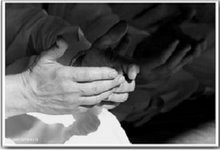
Becoming a doctor, I hoped, would bring me back into the real world,” Sandeep Jauhar writes in “Intern,” his fine memoir of his training in a New York City hospital. “It would make me into a man.” The story he tells here is antiheroic, full of uncertainty, doubt and frank disgust, aimed at both himself and, sometimes, his patients. “Intern” succeeds as an unusually transparent portrait of an imperfect human being trying to do his best at a tough job.
Jauhar’s journey into medicine is driven by a swirling mix of half-reasons. Disillusioned with graduate studies in particle physics, jarred by the illness of a girlfriend and seeking a profession of tangible purpose, he entered medical school in his mid-20s with considerable ambivalence. Jauhar had always eyed doctoring suspiciously, as a “cookbook” discipline, “with little room for creativity.” His father, a plant geneticist from India who felt his own advancement was stifled by racism, had derided medicine as intellectually inferior to pure science even as he encouraged both his sons to become doctors for the sake of income and prestige.
Jauhar arrives at his residency as a sensitive and standoffish observer, though he begins to see order in the chaos. “Life on the wards was like the plasmons I had studied in condensed matter physics,” he writes, “where individual electrons, moving randomly, coalesced into something greater than the sum of their parts. There was a sort of synchronized buzz. ... In the midst of this collective excitation, I kept thinking, Why am I so lonely?”
He’s keenly aware of the emotional assaults medicine mounts on patients and practitioners alike. In one characteristically blunt account, Jauhar, who began contributing articles on medicine to The New York Times during his training, describes his horror at realizing that he had failed to check a routine lab test on a patient who developed seizures, which may have contributed to the man’s death. Seeking comfort, he called his older brother, Rajiv, a brash cardiology resident several years ahead of him who serves as both a foil to Jauhar’s wide-eyed observations and a foreshadowing of his own emotional destination. “I know you love to beat yourself up, but don’t do it here,” Rajiv says, cutting off the conversation.
There is no perfect heroism here. Describing a senior resident he admired, Jauhar writes: “The only thing I would fault him on is his tendency to denigrate patients in conversations with other doctors. But that’s hardly unique to him.” Jauhar freely admits his own doubts. “Do doctors care?” he writes in one of the journal entries he quotes throughout the memoir. “I don’t know. I don’t see a lot of caring. Maybe I myself don’t care, or care selectively, which is hypocrisy, which I despise.”
In addition to telling Jauhar’s own story, “Intern” delivers a vivid portrait of the culture of a New York City hospital, with its demanding hierarchy and sometimes indifferent cruelty. Evocative street sketches bring relief from the claustrophobic wards while echoing the medical inhumanity inside. Jauhar depicts a city rich in energy and youthful beauty, which manhandles its own citizens once illness renders them foul smelling and inarticulate. In a typically unflinching passage, he describes a patient coughing phlegm that is “thick and green and coagulated” “with a pinkish tinge,” sticking to the sheets “like a thick gob of glue.” “Nobody wants to bother with you when you’re like this,” the patient tells him. “They go on past you, they don’t care.”
A culture of conflict floods in from the streets. The doctors and patients fight with the health care system, the doctors fight to retain their humanity, and the patients fight to retain their dignity and their health.
“Look at Mr. Fisher,” Jauhar writes. “Successful lawyer, Goldberg patient. Now look at him. Sick, febrile, dying of who knows what? ... It could make all of life seem unworthwhile if, in the end, we end up dying in the hospital, awakened at 4 a.m. by a stupid intern trying to draw another set of blood cultures.”
In the book’s most moving passage, Jauhar recalls a home visit to a terminally ill patient. All he could do was stroke the patient’s hand and listen. Years later, the family wrote to thank him for his kindness. Yet from his current perspective as a practicing cardiologist, Jauhar admits, “In some ways, I probably ended up becoming the kind of doctor I never thought I’d be: impatient with alternative hypotheses, ... sometimes indifferent (hard-edged, emotionless), occasionally paternalistic.”
The medical system ultimately wore down Jauhar’s most idealistic impulses, and yet allowed him to find a certain peace. “Medicine, I learned, is a good profession, not a perfect one — and there are many ways it could change for the better,” he writes. “But most of its practitioners ... were fundamentally good people trying to do good every day.”
Vincent Lam, a physician, is author of the story collection “Bloodletting and Miraculous Cures.”




No comments:
Post a Comment